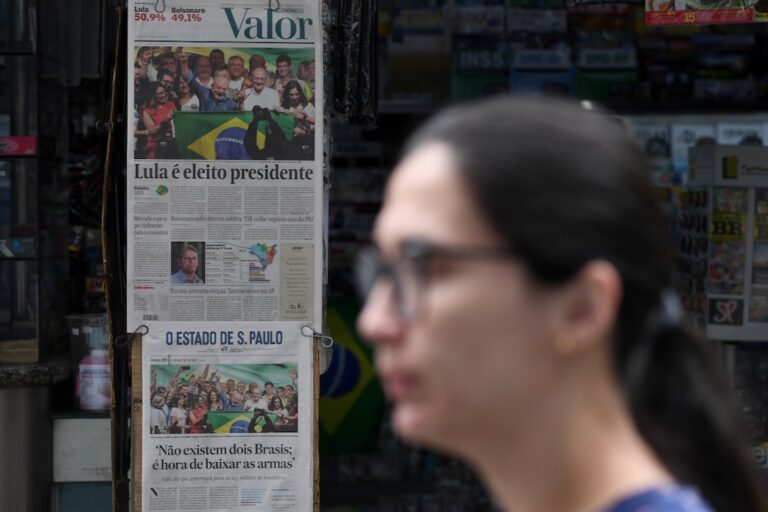(RSF/IFEX) – Reporters Without Borders is appalled by the murder of television cameraman Walter Lessa de Oliveira on 5 January 2008 in Maceió, the capital of the northeastern state of Alagoas, amid a disturbing crime wave in the city. Witnesses say he was gunned down by a drug trafficker and revenge appears to be the […]
(RSF/IFEX) – Reporters Without Borders is appalled by the murder of television cameraman Walter Lessa de Oliveira on 5 January 2008 in Maceió, the capital of the northeastern state of Alagoas, amid a disturbing crime wave in the city. Witnesses say he was gunned down by a drug trafficker and revenge appears to be the most likely motive.
“Brazil’s northeast continues to be a high-risk region for journalists,” the press freedom organisation said. “Without trying to anticipate the results of the investigation, we think it quite plausible that this was an act of revenge by a drug trafficker, especially as organised crime is so active there. We hope the leading suspect will be quickly found and questioned. We also hope that the alarming security situation in Alagoas will be quickly resolved.”
Aged 53 and employed by TV Assembléia, a public television service operated by the Alagoas state assembly, Lessa de Oliveira was gunned down while at a bus stop on the outskirts of Maceió. Citing several witnesses, the police have identified a drug trafficker known by the nickname of “Aranha” (Spider) as the killer. “Aranha” allegedly pulled up in a car alongside Lessa de Oliveira and fired four shots at him. Hit in the head, Lessa de Oliveira died immediately.
The most plausible theory is that the shooting was in revenge for the fact Lessa de Oliveira had in the past filmed footage of “Aranha” that was shown on state television. An alternative theory that has been suggested is that Lessa de Oliveira was shot while resisting an attempted robbery, but this is not supported by the witness statements taken by the police, and nothing was stolen from him.
Born near Rio de Janeiro, Lessa de Oliveira used to head the Alagoas Union of Professional Journalists and worked for TV Gazeta for more than 20 years. Of late, he had worked for the Maceió Centre for Higher Education, as well as TV Assembléia.
His death came amid a surge in armed crime in Maceió in which a total of 16 people were murdered in the city from 5 to 7 January. The state police have been on strike for five months for more pay and the authorities seem powerless to deal with the crime wave.


